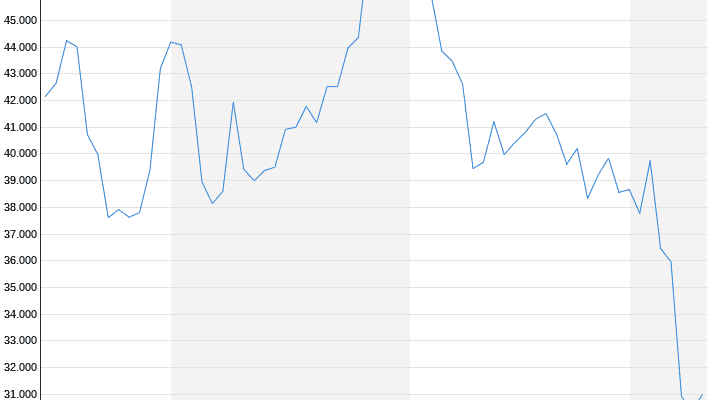Because of its proximity to Russia
Bitcoin launch in Central African Republic raises suspicions
05/11/2022 07:29 am
In the Central African Republic, just ten percent of the population has Internet access. Nevertheless, the government allows Bitcoin as a means of payment. It is unclear to whom the law applies. Business people are also at a loss. Experts find the decision “suspicious”.
It sounds like a strange idea: The Central African Republic, one of the least developed countries in the world according to the United Nations, allows the cryptocurrency Bitcoin as an official means of payment. The state is dependent on international aid and has been mired in civil war for the past nine years. Since only about one in ten residents has access to the internet or electricity, many are wondering what the government intends to do with this move. The suspicion was raised that Bangui wanted to facilitate dubious transactions in this way.
The UN, Western countries and international non-governmental organizations (NGOs) recently accused the government of handing over the Central African Republic to Russia and its mercenaries from the notorious Wagner Group. In exchange for raw materials, there should be military aid against the rebels in the country. Moscow has been under international sanctions since the war of aggression against Ukraine began. Bangui constantly complains about a UN arms embargo that has been in place since 2013.
At the end of April, President Faustin Archange Touadéra surprisingly announced that parliament had passed a law that would allow all transactions to be carried out in cryptocurrency and would introduce Bitcoin as a reference currency alongside the CFA franc. Any payment with the online currency, up to and including taxes, is allowed. Until then, such a regulation only existed in Central American El Salvador.
Even in Bangui there are daily power outages
It is unclear to whom the law is aimed: According to the World Bank, only 15 percent of the 5.5 million inhabitants of the Central African Republic have access to electricity. Even in the capital, Bangui, there are daily power outages. Only ten percent have access to the internet at all. Government spokesman Serge Ghislain Djorie assured: “We will educate the population and soon switch to fiber optics.” In addition, a weak internet connection is enough to buy cryptocurrency, he added.
But even business people who have the money, know-how and technology to use Bitcoin are at a loss from the law. “We have no infrastructure, no one knows enough to embark on this adventure,” said a Bangui entrepreneur who wished to remain anonymous. There is not even an agency for cybercrime. Typically, countries that accept other forms of payment choose a more stable currency than their own, such as the dollar or euro. However, the Bitcoin course is subject to extreme fluctuations.
According to Ganesh Viswanath-Nastraj of Warwick Business School, these fluctuations are reflected in the economy, consumption and household wealth when a cryptocurrency is launched. The Central African Economic and Monetary Community (CEMAC) was taken by surprise, as was the rest of the world, by Bangui’s decision. The Central African Republic cannot even pay its own officials, let alone its international creditors. The Economics Minister recently described the state of public finances as “alarming”.
Use to circumvent sanctions?
Expert Thierry Vircoulon from the French Institute for International Relations said the decision was suspicious in the context of systematic corruption in the Central African Republic and the partnership with Russia. “Russia’s search for ways to circumvent international financial actions calls for caution,” he said. The US organization The Sentry already declared in October 2020 that President Touadéra had turned his country into a haven for organized crime, money launderers and smugglers.
In this context, the organization named the Wagner group and “other Russian networks” in particular. However, the Managing Director of the International Monetary Fund, Kristalina Georgieva, recently stated that there was “no conclusive evidence” that online currencies could be used to circumvent sanctions.
